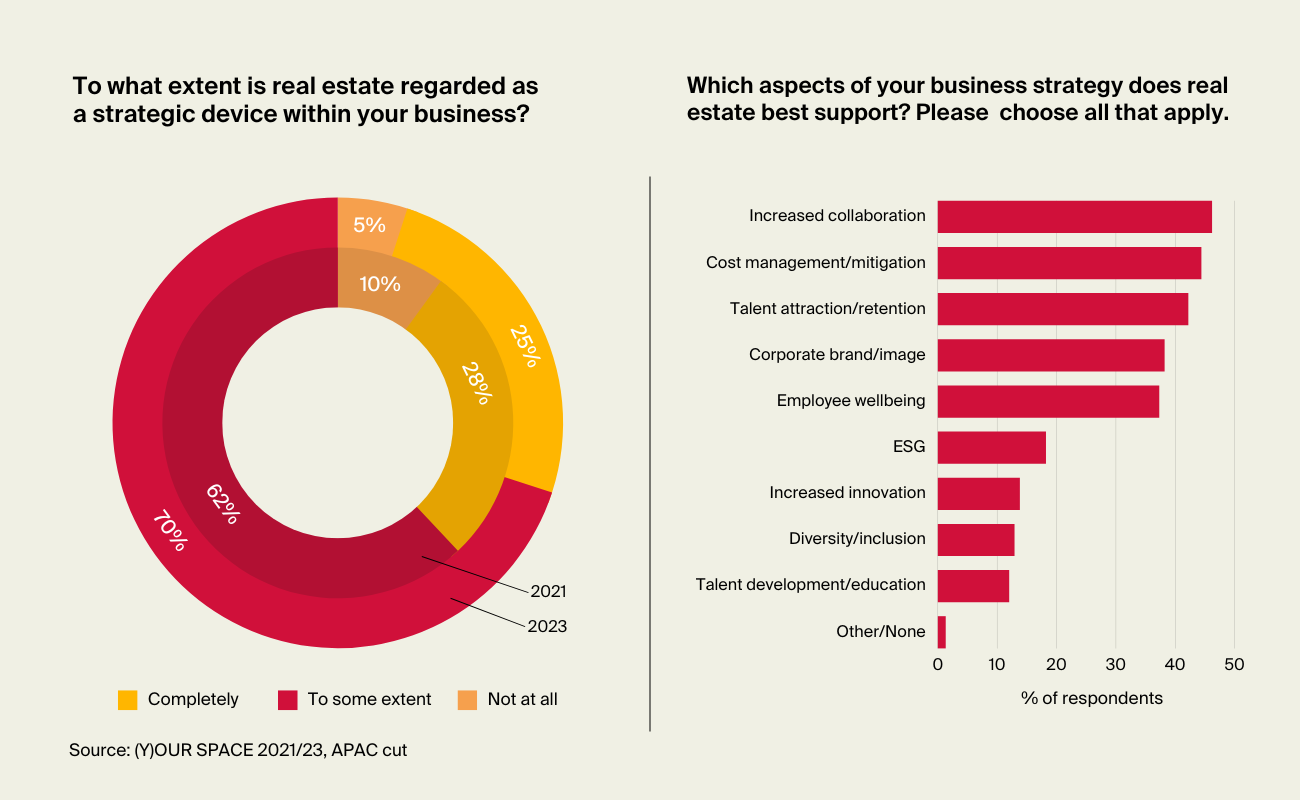What will drive CRE strategy in Asia-Pacific?
With the global economic outlook remaining challenging, organisations face multiple headwinds that are weighing on growth, amplified by inflationary pressures and the rising cost of funds.
2 minutes to read
Consequently, businesses are turning more cautious in light of the operating environment. However, on the flip side, the need for businesses to press ahead with strategic transformation initiatives has, arguably, never been more pressing.
An effective corporate real estate strategy can achieve significant savings as well as create efficiencies and support wider business transformation. Indeed, a consistent message from our (Y)OUR SPACE research since its inception in 2018 is that corporate real estate (CRE) is strategically significant, exerting real influence over operational excellence and organisational change.
No doubt, CRE lies at the heart of firms’ strategic transformation. 95% of respondents from Knight Frank’s (Y)OUR SPACE 2023 survey regard real estate as a strategic device, up from 90% in the previous survey carried out two years ago. The survey also further reveals that driving collaboration, cost mitigation, and talent retention are the top three drivers of strategic CRE decisions for Asia-Pacific respondents.

For most firms, real estate accounts for 10-15% of operational costs. However, while cost containment is a persistent concern, respondents regard CRE strategy as best placed to support organisational collaboration. Undoubtedly, the shift to hybrid working styles has compelled organisations to position their CRE strategy to deliver a more flexible working model without compromising goals. In a hybrid working environment, aligning CRE with a firm’s corporate culture as well as integrating technology have become even more vital.
Talent attraction and retention also remain among the top drivers of CRE agenda, as workers with relevant skillsets will be persistently in short supply. Flexible working arrangements have also emerged to be as critical as salary requirements in the talent war, with the need to devise appealing work environments as part of the solution.
Notably, despite increasing attention to ESG issues, it does not feature among the top five strategic considerations in Asia-Pacific, although it has gained ground from the last survey. As ESG initiatives have not been prioritised evenly in the region, there remains a supply and demand mismatch of real estate in terms of ESG.
Still, it is evident that CRE decisions has made its way up the corporate agenda. What was once vigorously managed due to its impact on bottom lines, the perspective of CRE’s impact on organizational performance has evolved and grown in importance. The office of the future now fulfils a critical role as an enabler of key organisational goals. This means putting in place a dynamic workplace strategy that caters to a diverse range of objectives.